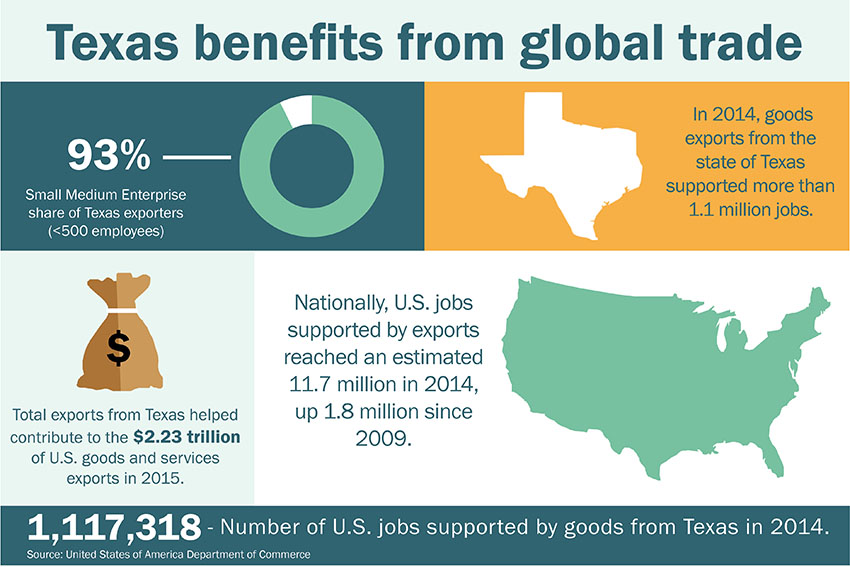Throughout the 2016 presidential election cycle, Trump has advocated a return to what he calls “Americanism,” an ideology primarily characterized by decreased international trade and a general lack of cooperation with the global community. Texans have been quite receptive to this approach, but data illustrates that our state has largely benefited from policy that engaged more with international markets. Attempts to shield the nation from the forces of globalization would be particularly harmful to our state. To foster a better future, it is important for voters to reach out to the international community.
The past two decades’ turn from domestic production to the rise of maquiladoras (Mexican factories operated by foreign corporations) and a consequent loss of industrial jobs throughout the state has left Texans feeling cheated by trade deals.
However, the North American Free Trade Agreement that Trump paints as such a detriment to middle and lower class employment has actually created 190,000 jobs and netted $16 billion in profits in Texas alone. The oil and gas industries, in addition to the electronics and natural resources economic sectors, have benefited from increased international trade. While many blue collar jobs may have nominally suffered, it’s clear that more open markets have yielded net positive results for the Texan economy — including Trump voters.
So why has Trump been so successful in capitalizing on these voters’ qualms? According to Michael Anderson, UT Austin government lecturer, “a lack of control” over the job market and international politics is a very real fear in American voters. “Globalization [was] okay when the U.S. [was] directing it and [was] the unquestioned prime power,” but now that other players demand a seat at the table, Texans and Americans are not so eager to involve ourselves in global trade and affairs.
It is by no means a black and white issue, but on the whole, globalization is a force for good. For the betterment of the Texan economy, it is crucial that we continue promoting inter-connection and cooperation between states. Opposing free trade is not a viable option, but to mitigate the negative side effects, voters should demand their governments provide larger safety nets.
For UT students, the opportunities to foster an exchange of ideas are limitless. Marketing senior Sasha Parsons, representing the UNA-USA student group, encourages Longhorns to take advantage of language courses and resources at Clements Center, as well as Model United Nations activities. Doing so helps students “learn to deal with trade offs… listen well, and be empathetic to the interests of others,” qualities which will serve our generation well at negotiation tables.
Whether or not Texans are excited to be involved with the outside world, reality deems it increasingly necessary. Facing the fifth year of the Syrian conflict, a refugee crisis and countless other issues that were caused, at least in part, by global apathy, now is not the time to shy away from the rest of the world. Now, more than ever, is the time to confront global crises together.
Audrey Larcher is an economics and Plan II freshman from Austin. Follow her on Twitter @veg_lomein.





















